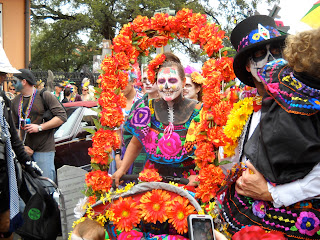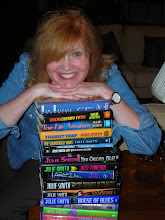The least a so-called historical novel should be is accurate, right? Doesn’t the reader have the right to expect that? Even if it’s lousy. I mean, you might not be a good writer, but at least you can look things up. I heard a panel discuss this at the Tennessee Williams Festival and it got me thinking.
One of the panelists told a story about not being able to make his plot work during the historical period he needed, so he just made historical events time-travel. Whathehell, it’s a novel, he reasoned. Who’s gonna care? Nobody’s going to read it anyhow. But to his surprise, it got published. People did read it. And to his even greater surprise, he learned year later that it was required reading at a historical museum! And it was a tissue of lies.
It was a pretty funny confession and I was expecting the self-deprecating coda in which he said he sure learned his lesson, but instead he said what he’d actually learned was that if you wanted to write a really successful historical novel, you should just say history-be-damned and do whatever you want. His novel, he said, was character-driven and literary and THAT was what was important.
There IS a kind of historical novel that depends on how things looked and what it was actually like to live in a time period, but those novels don’t count because they’re genre, he said. Or something, anyhow, that his wasn’t. He even had a name for them, something like paddlewheels-and-magnolias. I’ve forgotten the exact phrase, but that’s close.
My personal opinion? That he’s a lazy and dishonest writer who can’t be bothered to do his job. I think he should be humiliated that docents at that museum are probably giving out false information because of him and he should be working 24/7 to correct it. I think writers like him are one of the reasons there’s so much misinformation out there. But maybe I just have a guilty conscience.
Full disclosure: I recently finished a time-travel novel in which I couldn’t, after some twenty or so books, find out some things I needed, so I made up a few details. I confessed in an author’s note, but I still feel bad about it. Dammit, I think the reader deserves an accurate portrayal! I so much wish I could have done better. My book’s genre, no question, so by his standards I SHOULD have done better.
I wonder where genre leaves off and “literary” begins. Is “Gone With the Wind” genre? Is “Cold Mountain”? I honestly don’t know. Historicals aren’t my field. Any opinions on where you draw the line?



























